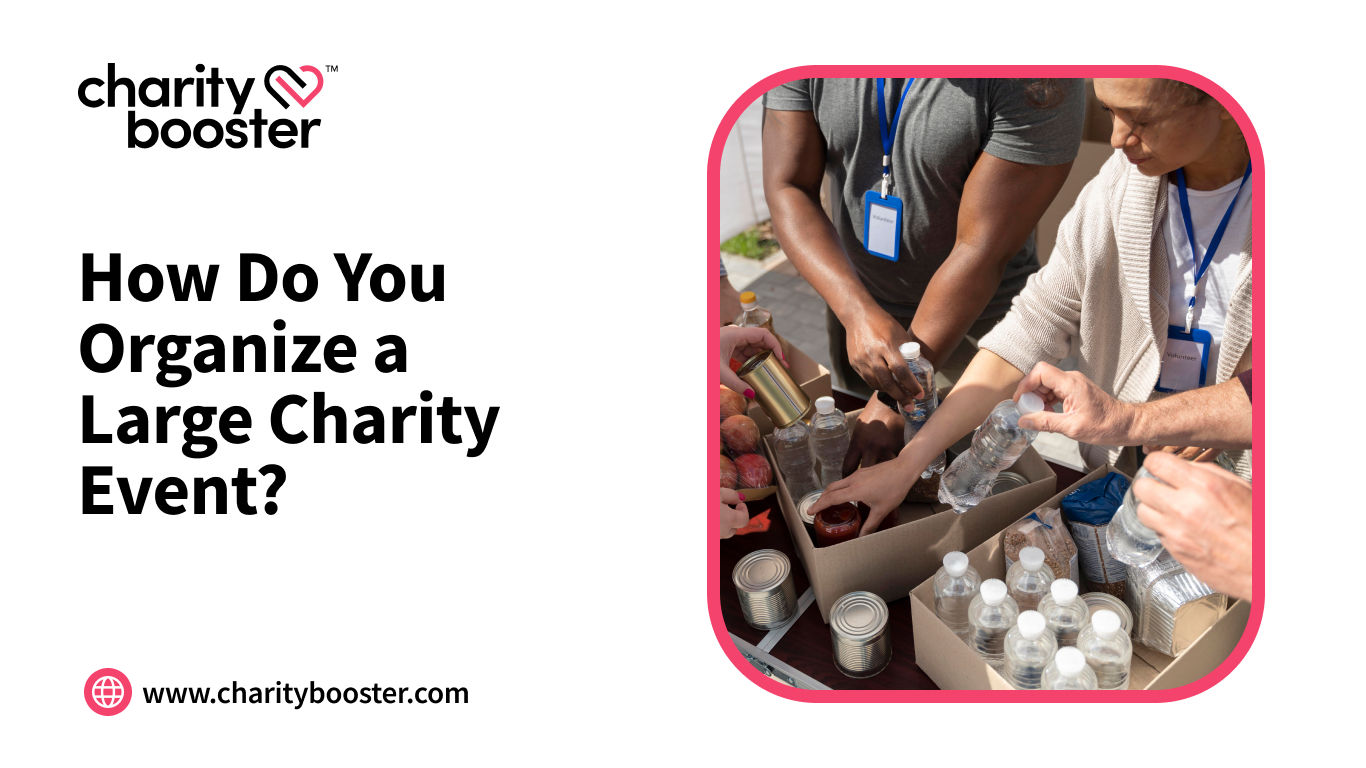
Organizing a large charity event is one of the most rewarding ways to bring people together for a good cause. From gala dinners and auctions to sports tournaments and concerts, these events not only raise funds but also build awareness and strengthen community spirit. However, managing a large-scale event requires careful planning, strong communication, and a strategic approach to ensure everything runs smoothly. If you’ve ever wondered how to pull off a successful fundraiser, this guide will walk you through the essential steps of planning, executing, and promoting a large charity event.
Define Your Goals and Objectives
The first step in organizing any major event is understanding its purpose. Are you raising funds for a specific project, increasing awareness about a cause, or building long-term donor relationships? Defining measurable goals—such as how much money you want to raise or the number of attendees you hope to attract—provides direction for the entire process. A clear objective will also help you choose the right type of event. A black-tie gala may be perfect for engaging high-value donors, while a community fair or fun run might work better for reaching families and local supporters.
Establish a Planning Committee
No one person can handle all aspects of a large charity event. Building a dedicated team ensures that responsibilities are divided efficiently. Committees often include individuals in charge of sponsorships, logistics, marketing, entertainment, and volunteer coordination. The earlier you assemble your team, the easier it will be to delegate tasks and maintain accountability. Regular meetings and progress updates will keep everyone aligned and focused on the same goals.
Set a Budget and Secure Funding
Budgeting is a crucial part of the planning process. List all potential expenses, including venue rental, permits, catering, equipment, decorations, and promotional materials. At the same time, consider potential revenue sources such as ticket sales, sponsorships, donations, and auctions. Approaching local businesses or corporate sponsors can provide financial support while also creating valuable partnerships. Many companies are willing to contribute in exchange for brand visibility at the event.
Choose the Right Venue and Date
The venue sets the tone for your event, so it’s important to select a space that aligns with your goals and expected audience size. Whether it’s a hotel ballroom, community park, or sports arena, make sure the location is accessible, safe, and equipped with the necessary facilities. Equally important is choosing the right date. Avoid scheduling conflicts with other major events in your area, and give yourself enough time—ideally six months to a year—to plan effectively.
Plan the Program and Activities
A large charity event should engage attendees from start to finish. Once you’ve settled on the type of event, design a program that balances entertainment with fundraising opportunities. This could include live performances, guest speakers, auctions, raffles, or interactive games. Think carefully about timing. For example, if you’re hosting a gala dinner, ensure that speeches and fundraising activities don’t disrupt the flow of the evening. If it’s a family fun day, include a variety of activities that appeal to all ages.
Recruit and Train Volunteers
Volunteers are the backbone of most charity events. From setting up the venue to assisting with registration and managing activities, they help ensure that everything runs smoothly. Recruiting volunteers early gives you time to provide training, assign roles, and establish clear communication channels. A positive volunteer experience also strengthens your organization’s reputation and encourages future support.
Focus on Marketing and Promotion
Even the best-planned charity event won’t succeed without effective promotion. This is where a strong Charity Event Promotion strategy becomes essential. Use multiple channels to spread the word. Social media platforms allow you to engage with supporters directly and create excitement through posts, videos, and event pages. Email newsletters help keep donors informed, while local press releases and community boards extend your reach to a broader audience. Partnering with influencers or local personalities can also generate buzz and increase attendance. Start promoting your event well in advance, and continue building momentum as the date approaches.
Manage Logistics and Operations
Behind every successful charity event is seamless logistics. This includes everything from seating arrangements and sound systems to catering and transportation. Conducting site visits and creating detailed timelines will help you anticipate potential challenges. Having contingency plans is also critical. Whether it’s bad weather for an outdoor event or last-minute cancellations from performers, being prepared ensures that your event can adapt to unexpected circumstances.
Engage Donors During the Event
The day of the event is your opportunity to strengthen relationships with donors. Make them feel valued by providing a warm welcome, offering personalized thank-yous, and highlighting the impact of their contributions. Interactive elements, such as photo booths, live auctions, or donation challenges, keep energy levels high and encourage attendees to participate more actively. Sharing personal stories or testimonials about the cause adds an emotional connection that inspires greater generosity.
Follow Up After the Event
Many organizers overlook the importance of post-event communication. Once the event is over, take time to thank everyone who contributed, from donors and sponsors to volunteers and attendees. Share highlights, fundraising results, and success stories through email updates and social media. This follow-up not only shows appreciation but also builds trust and paves the way for future support. Evaluating the event’s performance—what went well and what could improve provides valuable insights for your next fundraiser.
Final Thoughts
Organizing a large charity event can seem overwhelming, but with careful planning and a clear strategy, it can be a rewarding experience that makes a meaningful impact. From setting clear goals and assembling a strong team to promoting the event and engaging attendees, every step plays an important role in success. Remember, effective Charity Event Promotion is just as critical as the event itself. The more people know about your fundraiser and feel inspired to attend, the more support you’ll generate for your cause. With the right preparation, creativity, and dedication, your charity event can raise significant funds, strengthen community connections, and leave a lasting legacy of goodwill.
